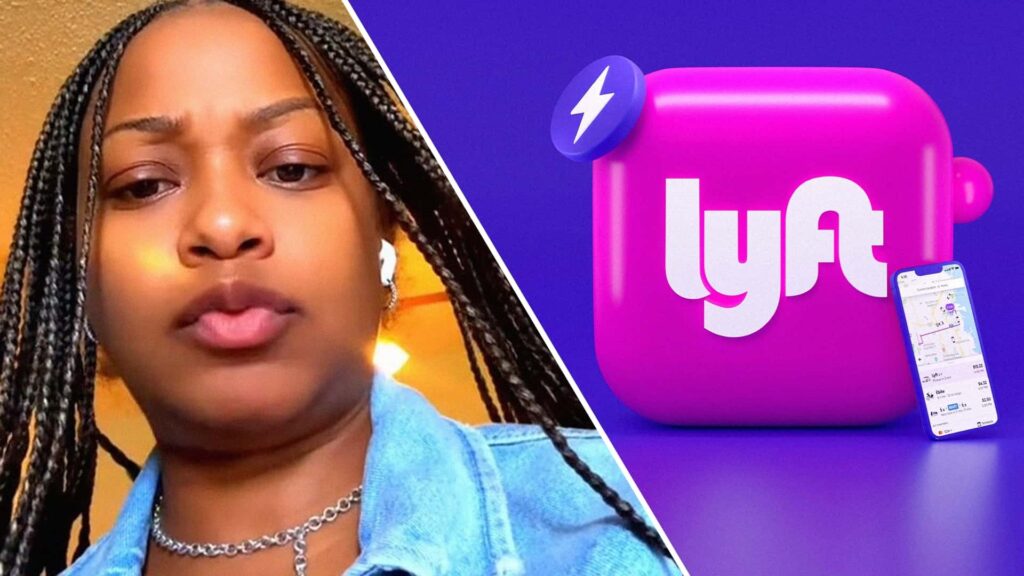
Taking a rideshare like Lyft or Uber is often seen as a convenient way to travel, but it can also be costly. In a viral TikTok video, content creator Valuable V (@vistheway) shared a straightforward strategy to cut down on rideshare expenses, benefiting both passengers and drivers. As of now, the post has garnered 8.4 million views, sparking widespread discussion on its potential to save money and even secure a private driver.
In the video, Valuable V explains how she managed to save $40 on a Lyft ride. She did so by asking the driver a simple question: “How much is Lyft paying you for this ride?” The fare was initially set at $80, but the driver revealed they were only receiving $20. Valuable V then offered to cancel the ride and pay the driver $40 in cash, which the driver accepted. This tactic has resonated with many viewers, with some sharing similar experiences.
Understanding Lyft’s Pricing Model
Lyft employs a dynamic pricing model, which adjusts prices based on current market conditions. According to Harvard Business School, dynamic pricing involves setting prices for products or services based on fluctuating market trends. Lyft’s algorithm aims to balance demand and supply by optimizing the rideshare network for both riders and drivers.
On its website, Lyft outlines that fares are calculated based on the estimated time and distance to complete the ride, as well as the distance to the pickup location. Other factors include the number of ride requests, the availability of drivers, and the busyness of the destination area. This often results in higher costs during peak times, such as rush hour or after major events, a phenomenon known as surge pricing.
Driver Compensation: A Closer Look
Lyft drivers’ earnings can vary significantly. According to Glassdoor, the average pay for a Lyft driver ranges from $17 to $23 per hour. Business Insider reports that the hourly rate can be as low as $9-12 and as high as $23-28, depending on factors like tips, expenses, and Lyft’s fare calculations.
The rideshare industry has faced criticism for allegedly underpaying drivers. A Reddit thread last year saw over a hundred comments discussing driver pay, with one user stating, “I recently had a driver who told me that out of a $120 fare he was only paid $20.” Other drivers shared similar stories, highlighting the disparity between what customers pay and what drivers receive.
“I had a ride last week that paid $92 and I got $12. Lyft is straight thieves,” commented a Reddit user who claims to drive for the company.
Lyft’s Response to Pay Concerns
In response to these concerns, Lyft has introduced features aimed at increasing driver pay. The company told Motor1, “Drivers are essential to our purpose. That’s why we’ve released a series of new features aimed at increasing driver pay. This includes an earnings commitment that ensures drivers always make at least 70% of the weekly rider fares after external fees.”
Lyft explains that if a driver’s earnings fall below this threshold in a given week, the company will pay the difference, minus external fees. These fees include commercial auto insurance, airport fees, data processing fees, payment processing fees, sales tax, government fees, and ancillary insurance fees.
Additionally, Lyft acknowledges that rising car insurance costs are affecting driver pay. “It’s also important to remember that runaway insurance costs are taking up an increasing percentage of the total rider fares,” the company stated. “That’s bad for both riders and drivers, and it’s why we are working with state lawmakers across the country to pass common-sense insurance reform that will help get these costs under control.”
The Broader Implications and Future Outlook
The viral TikTok video by Valuable V has prompted many to reconsider how they approach rideshare services. Her advice to directly negotiate with drivers could become a more common practice among passengers looking to save money while ensuring drivers receive fair compensation.
As the rideshare industry continues to evolve, the balance between fair pricing for riders and adequate compensation for drivers remains a critical issue. Companies like Lyft are under pressure to address these concerns while maintaining a sustainable business model. The ongoing discussions among users, drivers, and companies highlight the need for transparency and fairness in the rideshare economy.
Motor1 has reached out to Valuable V via TikTok for further comment. This story will be updated should she respond.







